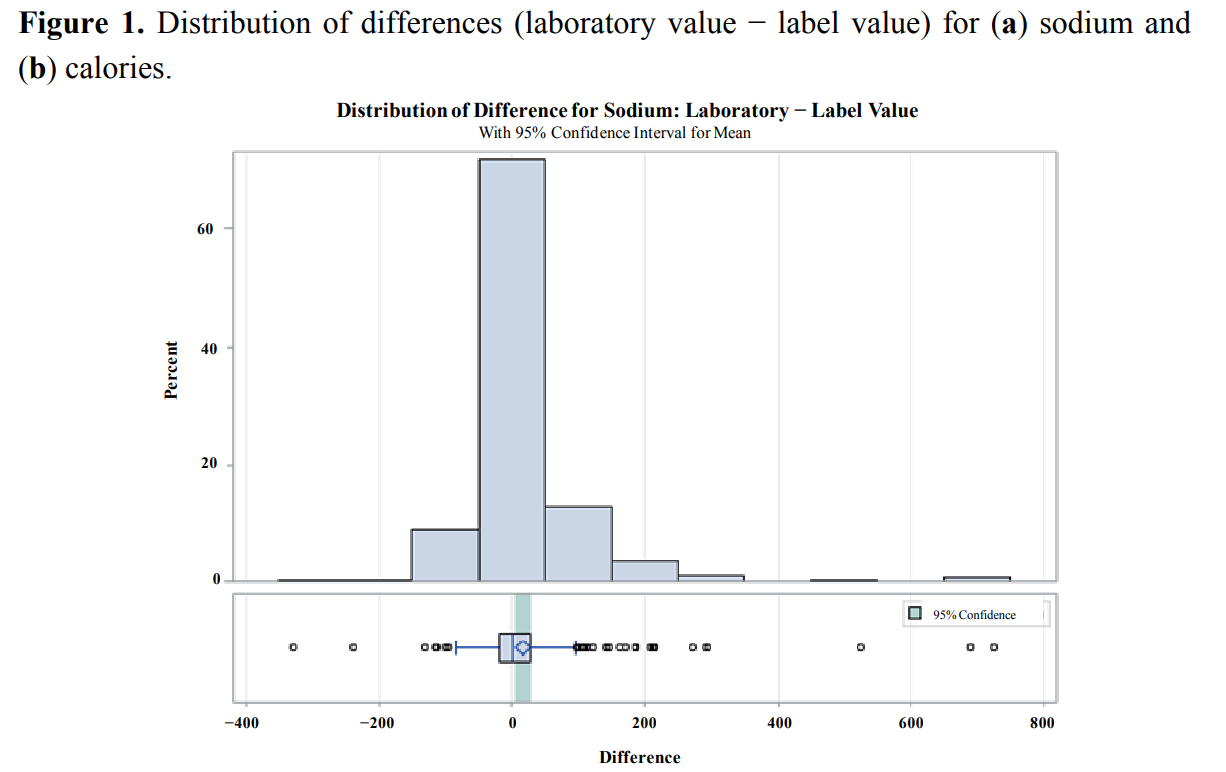Ummm…. maybe not as accurate as you think.
My main mineral of interest is potassium. Potassium is a relatively new addition to the nutrition facts table in both Canada and America. And as a renal dietitian – I couldn’t wait for it to start making my life and my patient’s life easier. That’s because I assumed that the information that would be posted on these labels would be accurate. But what if it isn’t?
I have not been able to find a larger scale scan/paper writing about the accuracy of potassium content reporting on our food labels, but there was an article written not too long ago about the accuracy of sodium reporting.
Today’s Paper

Article Overview
- What they did? The accessed the nutrient analysis data from the Canadian Food Inspection agency and compared the lab analyzed result for sodium to the amount listed on the label
- What they found? Of 1010 products analyzed, 18.4% were graded as unsatisfactory as the amount listed on the label was different by more than 20% of the lab analyzed data.
- Why this matters? For dietitians and patients looking to limit an nutrient, under-reporting can mean that we could be recommending a food that is too high in a nutrient by mistake, or that patients are consuming something that is harmful to their health – without intending too.
Ok – but how inaccurate was it?

This graph looks a bit confusing – but here is what I want you to notice. The largest bar – shows that many products were accurately reported. But those bars off to the right of that large bar are products under-reporting sodium content. A few by as much as 800mg! Many are closer to 200mg. But that’s still a lot if a patient is aiming for 1500mg total.
Swap back to potassium for minute

In this paper, the lab-nutrient analyzed values for potassium, phosphorus and sodium of 91 meat, fish and poultry products were compared to the values posted in the Canadian Nutrient File. And what these authors found was that many of the values for potassium was under-reported.
Take Aways
Its a bit grim really – the take away today… The truth is that we have some work to do on the accuracy of nutrient reporting on labels and in food databases. I think we can let our patients know that the the amounts listed on labels can be a guide but that they may not be accurate enough if they need to closely monitor their intake of a specific nutrient (for example sodium or potassium). I think if we can encourage our patients to consume minimally-processed foods without additives, the information on the labels may be more correct, but 1) that doesn’t work for all patients and 2) that’s actually just my own bias – I don’t have any data to back that up (YET!).
Thanks for reading. Let me know if you have any questions or ideas for the next journal club article.




One thought on “How accurate is that information on the nutrition facts table?”